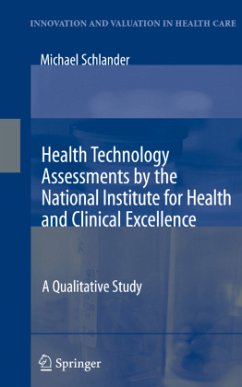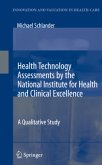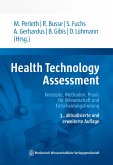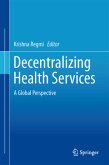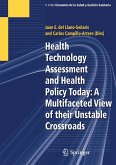First in a new series on economic issues in the context of health care policy, Health Technology Assessments by the National Institute for Health and Clinical Excellence examines Britain's highly acclaimed approach to cost-effectiveness analysis (CEA), and its international potential.
The National Institute for Health and Clinical Excellence (NICE) has been regarded as a role model for the implementation of CEA, and is being closely watched by health care policy makers throughout Europe, and in the United States. This volume dissects the robustness of the agency's technology appraisal processes as NICE evaluates innovative methods for diagnosis and intervention. Given the unique features of attention-deficit/hyperactivity disorder (ADHD)-starting with it being diagnosed mainly in children and adolescents, its high comorbidity with other psychiatric conditions, and its considerable economic impact-the disorder is a perfect focal point for discussion.
The National Institute for Health and Clinical Excellence (NICE) has been regarded as a role model for the implementation of CEA, and is being closely watched by health care policy makers throughout Europe, and in the United States. This volume dissects the robustness of the agency's technology appraisal processes as NICE evaluates innovative methods for diagnosis and intervention. Given the unique features of attention-deficit/hyperactivity disorder (ADHD)-starting with it being diagnosed mainly in children and adolescents, its high comorbidity with other psychiatric conditions, and its considerable economic impact-the disorder is a perfect focal point for discussion.

